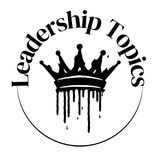Language on Resumes May Be Holding Women Back in the Workplace
Recent research shows that words women use on résumés impact hiring, especially in male-dominated fields. Studies reveal women are often penalized for communal language—traits tied to empathy and collaboration—which may reduce their perceived leadership potential.

New insights reveal that the words women use on their résumés can significantly influence their chances of being hired, especially in male-dominated fields. According to recent studies published in the Journal of Business and Psychology, language choices on résumés can either enhance or detract from perceived suitability for specific roles. For women, this choice of words can play a pivotal role in determining hiring success, as language that may be advantageous in female-dominated fields can create barriers in more male-oriented professions.
Understanding Communal vs. Agentic Language
Researchers examined over 2,500 résumés from various professions posted on Indeed.com, covering both male-dominated and female-dominated industries. The focus was on the prevalence of two types of language:
- Typically associated with women, communal language emphasizes qualities such as empathy, teamwork, and nurturing. Examples include words like supportive, caring, and collaborative.
- More commonly linked to men, agentic language highlights assertiveness, ambition, and leadership traits. Examples include words like determined, ambitious, and driven.
The findings showed that women used communal language more frequently than men across the board, regardless of the type of role. Surprisingly, there was no significant difference between men and women in the use of agentic language, suggesting that while women may emphasize empathy and teamwork more, they also reflect ambition and assertiveness.
The Impact of Language on Hiring Decisions
To dig deeper into the implications of these language choices, the researchers crafted fictional résumés mirroring real-life language patterns. In a follow-up study, 346 hiring professionals evaluated these résumés, assessing candidates for both a human resources role (a traditionally female field) and an IT manager position (a male-dominated field).
The results were telling. Women applying for the IT manager role were penalized for using communal language, with hiring professionals perceiving them as less likely to be hired and less suited for leadership. On the other hand, men applying for the same position faced no such penalties for using communal language. This suggests a stark contrast in expectations: in male-dominated fields, communal traits may seem incompatible with leadership roles.
Women applying for the HR role, however, saw no negative consequences from using communal language. This points to a perception gap, where communal qualities are valued or neutral in fields traditionally associated with women but may undermine perceived competence in fields that prioritize independence and assertiveness.
The Double-Edged Sword of Résumé Language for Women
These findings bring to light a significant dilemma for women in the workplace: balancing warmth and competence. Women who adopt an exclusively agentic tone risk being perceived as overly aggressive, which can affect their likability and, by extension, their hireability. However, using too much communal language can lead to being seen as less capable leaders, particularly in male-dominated professions. This is a double-edged sword that leaves many women navigating a fine line between demonstrating empathy and assertiveness.
The study’s authors recommend that women carefully evaluate their language choices on résumés. While communal language may be suitable for fields that value relationship-building, roles in male-dominated fields might benefit from a blend that showcases both warmth and competence.
Gender Bias and Stereotypes in Hiring Practices
This research adds to the broader conversation about gender bias in hiring. Women, regardless of the industry, are often expected to demonstrate empathy and nurturing traits, reflecting societal stereotypes. When women align with these expectations, they may face penalties in fields that emphasize assertiveness and independence, revealing how pervasive and entrenched gender biases still are.
Public figures like Kamala Harris and Nancy Pelosi exemplify this struggle, having faced criticism for exhibiting ambition and assertiveness in ways that are often celebrated in male leaders. This study underscores the importance of challenging these biases, as gender stereotypes evolve and continue to impact women’s professional lives.
Navigating Résumé Language and Bias for Career Success
The complex interplay between language and gender bias poses a challenge for women seeking roles in various fields. While more research is needed to identify strategies that balance communal and agentic language effectively, one approach may be to tailor résumés to align with the values of the industries they target. By thoughtfully choosing language, women can better position themselves for roles that match their strengths, while remaining aware of the potential biases in the hiring process.
Until society moves past these stereotypes, women in the workplace may continue to face the balancing act of presenting themselves as both warm and competent leaders. Tailoring language to fit the industry and company culture is a proactive step, but broader efforts to address gender bias are necessary for long-term change.
The Leadership Topics




